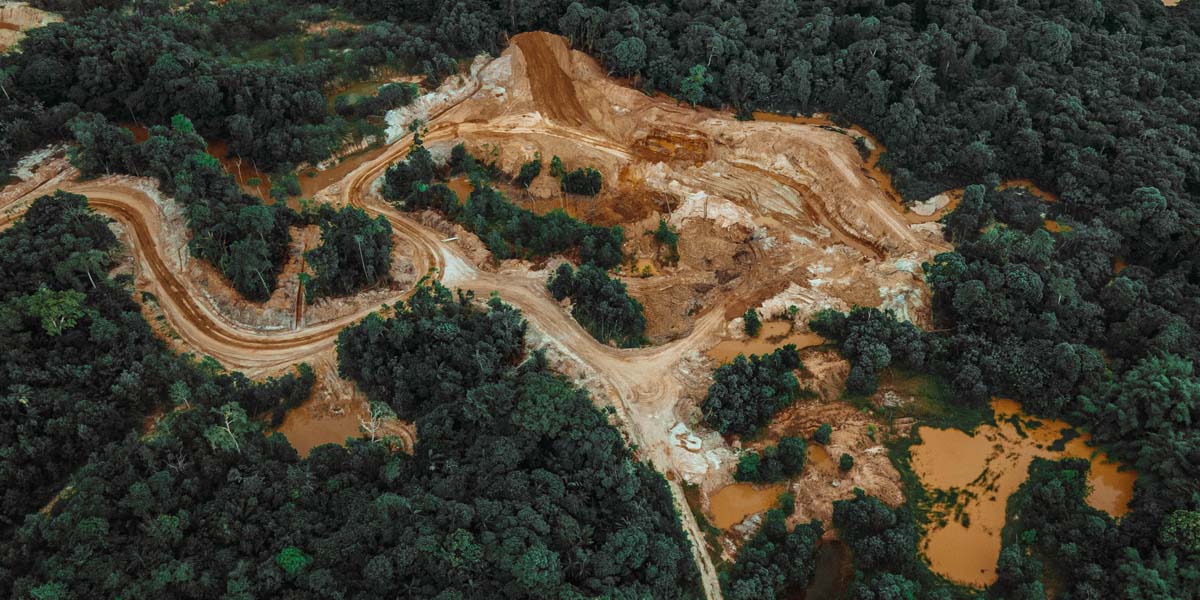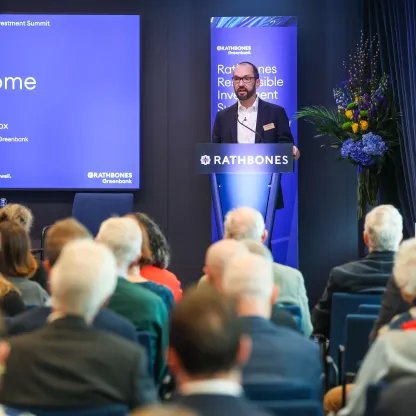In June the UK House of Lords voted in support of an important amendment to the Financial Services and Markets Bill that would require UK financial institutions to carry out thorough checks on those they fund to prevent the financing of illegal deforestation.

Greenbank’s engagement on illegal deforestation
Article last updated 23 June 2023.
Greenbank engagement leads to positive move to end illegal deforestation
In June the UK House of Lords voted in support of an important amendment to the Financial Services and Markets Bill that would require UK financial institutions to carry out thorough checks on those they fund to prevent the financing of illegal deforestation.
Rathbone Greenbank signed a public letter of support ahead of the key vote alongside six other investors and company officials representing over £1 trillion in assets under management and advice.
The new law would complement similar UK legislation (Schedule 17 of the Environment Act) that requires companies with large UK operations to carry out due diligence to prevent them from importing ‘forest risk commodities’ (such as beef, leather, timber, pulp and paper, and palm oil) produced on land illegally deforested under local law. Extending the due diligence system to cover UK financial services is backed by the government’s own expert taskforce, the Global Resource Initiative (GRI).
Deforestation is the leading driver of global biodiversity loss and responsible for 12% of global greenhouse gas (GHG) emissions.
The role of investors in combatting deforestation
We see the amendment as an important opportunity to position the UK financial sector at the forefront of the nature and finance agenda. This would be a vital step toward ending biodiversity loss by 2030 - a key aim of the Kunming-Montreal Global Biodiversity Framework.
Deforestation is the leading driver of global biodiversity loss and responsible for 12% of global greenhouse gas (GHG) emissions. Commodity-driven deforestation must end by 2025 to stay on a pathway limiting global temperature rises to 1.5C.
Financial institutions are linked to deforestation through the investment or financing they provide to companies which produce or process forest-risk commodities. They are also indirectly exposed through companies which use forest-risk products in their value chain.
We call on more financial institutions to join us in advocating for strong deforestation due diligence legislation to apply to our industry ahead of the Bill returning to the House of Commons.
Effectively managing these risks requires due diligence frameworks to be in place. After all, it is very difficult for companies to manage a risk if they are not aware of it. We also believe effective due diligence should include an understanding of related human rights risks.
We call on more financial institutions to join us in advocating for strong deforestation due diligence legislation to apply to our industry ahead of the Bill returning to the House of Commons, given the critical role financing plays in eliminating commodity-driven deforestation.
Greenbank’s engagement work
Earlier this year Rathbone Greenbank engaged with seven of the 150 financial institutions identified in the latest Forest 500 report produced by Global Canopy. These companies were recognised as having the greatest power to transform commodity supply chains and reduce deforestation risk, due to their financing of forest-risk commodities.
We wanted to understand their approach to the issue following the areas set out in Global Canopy’s Finance Sector Roadmap, including understanding and mapping risk, monitoring and engagement, disclosure and nature positive financing.
This is part of our broader programme of engagement on the topic of biodiversity. You can read more about our activity in our latest Engagement Review.
As part of our membership of the Finance for Biodiversity Foundation we participate in three working groups focused on target setting, policy advocacy and engagement.




